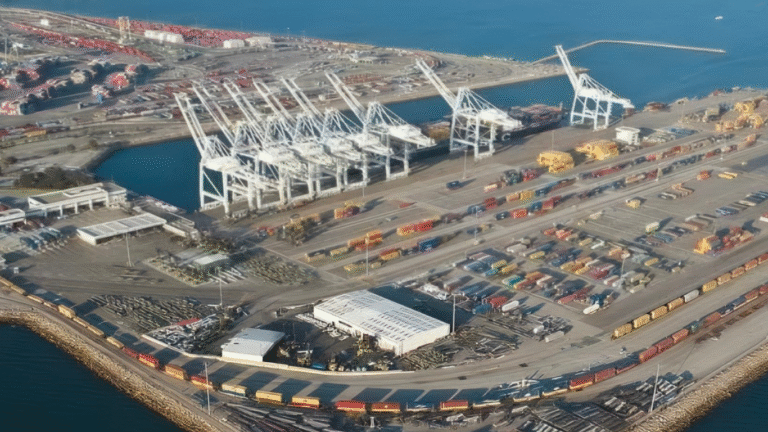
Over the last two decades, industrial areas in Noida have transformed into one of the most important manufacturing and business zones in North India. Located in Uttar Pradesh, close to Delhi and Ghaziabad, Noida has become a strategic hub for industries ranging from IT and electronics to textiles and automobiles. Its well-planned infrastructure, wide roads, and proximity to the capital make it an attractive choice for both Indian and international companies.
The industrial journey of Noida began in the 1980s when the government introduced the New Okhla Industrial Development Authority (NOIDA) to develop land for industries and housing. Since then, the area has witnessed steady growth. Today, it is home to large-scale industries, medium enterprises, and even small manufacturing units. Many global brands have set up their factories and offices here, thanks to Noida’s excellent connectivity with expressways, highways, and airports.
Beyond just being an industrial hub, Noida has also become an employment generator. Thousands of skilled and unskilled workers have found jobs in its industrial zones, driving economic growth in the region. The rise of industrial areas here has also boosted the demand for residential projects, shopping complexes, and social infrastructure, making Noida a balanced city of work and life.
Key Industrial Sectors in Noida
The strength of industrial areas in Noida lies in their diversity. A wide range of sectors thrive here, each contributing significantly to the region’s economic output. One of the most prominent sectors is IT and electronics manufacturing, with companies like Samsung, HCL, and Tech Mahindra operating in the city. Noida is also recognized as an IT outsourcing hub, housing both tech parks and business process outsourcing firms.
Apart from IT, textiles and garments play an important role in Noida’s economy. Several export houses and garment factories are located in the industrial sectors, producing goods for international markets. Automobile components and plastic manufacturing units also have a strong presence, providing raw materials and finished products for both domestic and global markets.
Food processing is another growing industry, with companies establishing plants to cater to rising demand in North India. In addition, printing, packaging, and handicrafts continue to flourish in Noida’s industrial ecosystem. The mix of traditional and modern industries ensures that the region’s economy remains stable and versatile.
Major Industrial Areas in Noida
Noida has several designated industrial zones, each developed to support specific industries and provide world-class facilities. These areas are carefully planned to include wide roads, water supply, electricity, and proper waste management systems. Some of the most prominent industrial areas in Noida include:
| Industrial Sector | Highlights | Industries Present |
|---|---|---|
| Sector 1–10 | Oldest industrial hubs | Textiles, handicrafts, printing |
| Sector 57–67 | Well-developed infrastructure | IT, electronics, BPOs |
| Sector 80–88 | Large industrial plots | Automobile parts, packaging, plastics |
| Sector 150–168 | Emerging hubs near expressways | Food processing, logistics |
| Sector 62, 63 | Known for IT and services | Software companies, startups |
These industrial clusters not only support manufacturing but also create opportunities for service providers, transport companies, and small traders. Each sector has its own specialty, which makes Noida a diversified industrial city.
Why Noida Attracts Businesses
The popularity of industrial areas in Noida is not accidental—it is the result of several advantages that businesses gain by setting up here. First, its location is unmatched. Being just 20–30 kilometers away from Delhi gives companies access to a huge consumer market, skilled workforce, and government resources. The city is also well connected to the upcoming Jewar International Airport, Eastern Peripheral Expressway, and Delhi Metro, making logistics efficient.
Second, Noida offers affordable industrial land and spaces compared to Delhi or Gurgaon. This cost-effectiveness makes it attractive for startups and medium-sized industries. The government has also introduced schemes and incentives for entrepreneurs to establish units in Noida.
Third, Noida provides a supportive ecosystem. Along with factories, there are research centers, training institutes, and skilled manpower available in abundance. The presence of residential areas nearby also ensures that employees do not face long commutes, adding to productivity.
Lastly, the city’s focus on planned infrastructure and technology has helped industries operate smoothly. From uninterrupted power supply to digital connectivity, Noida ensures that businesses find everything they need to succeed.
FAQs
Q1: Which sectors dominate the industrial areas in Noida?
The key sectors are IT, electronics, textiles, automobile parts, packaging, and food processing.
Q2: Why is Noida considered a good place for industries?
Its location near Delhi, good infrastructure, affordable land, and availability of manpower make it ideal.
Q3: Which are the major industrial sectors in Noida?
Some of the major zones include Sector 1–10, Sector 57–67, Sector 80–88, and Sector 62–63.
Q4: Does Noida support small-scale industries?
Yes, small and medium-scale industries are well supported with affordable plots and government schemes.
Q5: How has industrialization impacted Noida’s growth?
It has created jobs, boosted the real estate market, and improved the overall economy of the region.



